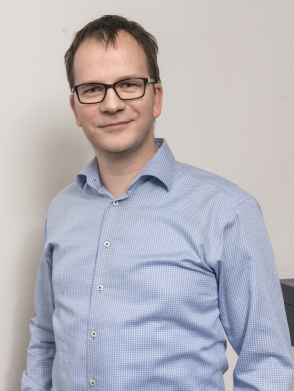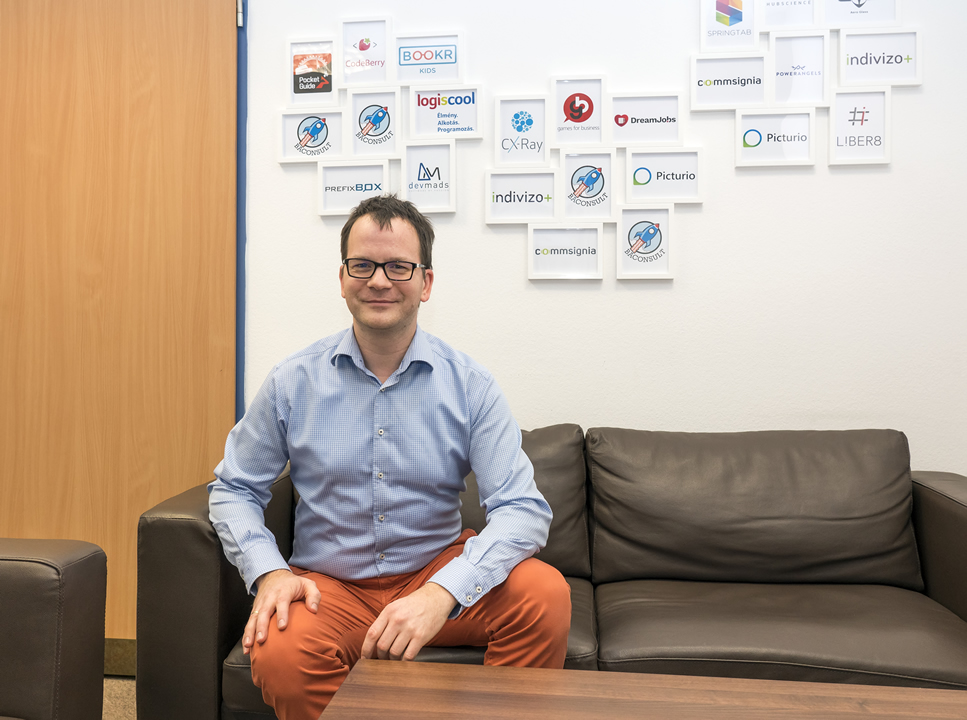
Peter Balogh
Although he has come the long way, today Péter Balogh is helping others’ start-ups through his incubator called Baconsult. When graduating from the university in 1997, at the dawn of the internet age, he was already engaged in developing real estate and used cars websites, with support softwares and search engines. After a while, he and his team began to develop a pharmacy IT system for which they have tested a number of new technologies. Being way ahead of their time, in the era of dial-up internet, their system was able to automatically process online orders, monitor stocks and offered many more new features that became part of our everyday life only years later.
Then he went to Finland and joined Nokia to build wireless networks in a team composed mostly of Hungarians. The technology known as WiFi has many essential features which are the results of this team’s work. “At Nokia, they let me work only ten hours a day”, says Peter, which sums up pretty well his approach to work. He channelled the excess energy he had after a ten-hour working day into developing mobile games well before the smartphone era as we know today. This led to a new milestone and the establishment of another business ahead of its time in 2002, back in Hungary. PDAmill, a small Hungarian company became a global market leader of mobile games in the coming years. “This was just a couple of years before the whole thing would attract big money”, he said laughing.
Game development was soon followed by the development of a GPS-based navigation system. As co-founder and CEO of NNG (better known as iGO my way), he built a company with a turnover of USD 100 million, employing 850 people from scratch. Then in 2013, he sold his share and, in 2015, left the company. Ever since, he has been dealing with start-ups, offering the benefit of his expertise and even money to emerging Hungarian businesses.
Personal mentoring
Under the umbrella of Baconsult, they provide support to start-ups through discussions, consulting, mentoring and investments. Their ambition is to see the Hungarian start-up ecosystem raising ever more enterprises of international reputation like NNG, Prezi or Ustream. In the first wave, they invested around HUF 300 million from their own capital into rising enterprises. In addition to their own money, time and efforts, they have further funds of HUF 495 million made available to them under the “ÖKO 16” funding programme of the National Research, Development and Innovation Fund for supporting start-up teams with the highest potential. “We have sought to compile a call for proposals whereby start-ups can get as much of this state-funded amount of HUF 495 million as possible in addition to our own efforts and investment, while keeping our reimbursed own costs at a minimum level.”
In addition to such funding, they also invest their own capital into the selected companies and even help find co-investors to ensure a high-value incubation programme. Besides money, a similarly important asset is knowledge that they also add by providing personal mentoring to each start-up selected to the programme. What is more, the newly selected ones get involved in a way more extended circle and become part of a community since there is an intensive communication also among the formerly and currently mentored businesses.
With this money, they can afford funding for 10 projects, though they see already 12 start-ups they would be pleased to invest into. Nevertheless, applications are still welcome as there is always room for another really outstanding start-up. By January 2018, two agreements have already been concluded, one for the Medicall service and another for a technology called Prefixbox. The final list of supported start-ups is expected to be completed by the spring or summer, while actual mentoring along with the investments will be started gradually.
A new level of doctor-patient communication
Medicall is an application already in use that puts doctor-patient communication on a new footing. With this application, specialists from various fields of medicine registered in the system may be selected and consulted for a per-minute fee.
Currently, there are more than 200 medical specialists registered in the system, which also tracks their real time availability. In addition to phone consultations, another core service provided by the system is that house calls can be ordered any time: a service of convenience that may even save lives. Service is available 24 hours a day, whether we need to contact a physician or a pediatrician. The cost of services is charged on the client’s bank card registered in the mobile application, thus it is safe and convenient, no need to carry cash even if it’s a house call. The application can be downloaded to Android and iPhone alike for free.
They know what we search for
Prefixbox’s team focuses on a whole different area: they are developing a search technology, primarily for web shops, that can facilitate a significant increase in revenue. The enormous potential inherent in this technology is reflected by a proven 20-30 percent increase achieved by web shops that have already implemented Prefixbox. The application as a whole relies on the finding which says 30 percent of web shop users simply cannot find the product they are looking for, although it is included in the catalogue. In such cases, potential buyers become frustrated and the web shop loses a significant income.
Technical terms, synonyms, misspellings also render the search more difficult, therefore it is very important to equip the web shop with a very smart search engine, autocompletion and a good recommender system. Their clients already include such renowned companies as Praktiker, Rossmann or BestByte.
“I think both teams have the potential to become significant actors on the market either regionally or globally, or even to change it. We are very excited about the months and year to come”, says Péter Balogh. Negotiations with further four selected start-ups about support, investment and mentoring are already well advanced.
 |
| Péter Balogh |






